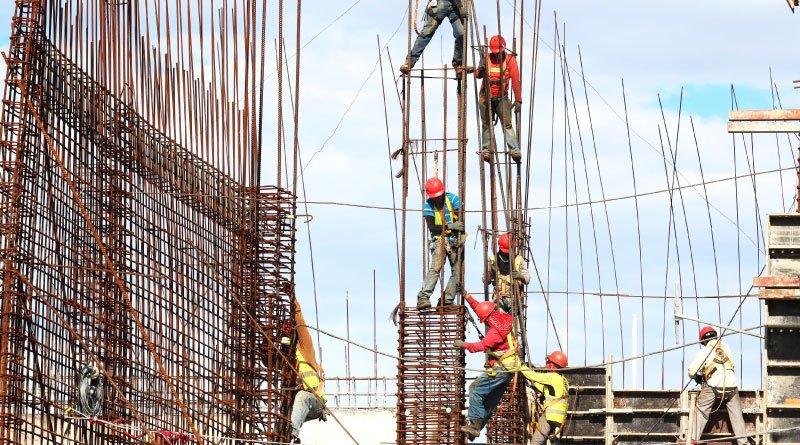Drafting a construction contract is million times more difficult than signing it in seconds. There are many significant statements and conditions that you should indicate because if not, you will end up in a dispute or worse, in court trials. When this happens, the project might impede and will cost you a lot. From making a subcontractor statement, reviewing the documents to making permits, all of these are exasperating.
For some building projects, having a contract is unnecessary. Both sides will just discuss the scope of work, design plans, and target budget. Just to tell you, this is crucial and risky. As we always say, nothing is real until the contract is signed. You need to be legal and professional when it comes to these. We’re talking about a huge amount here.
Aside from knowing the important clauses that you should add, it is best to know the things you must avoid and not include at all. Check out these clauses that typically found in a contract but should not be included.
What to avoid in a construction contracts?
Legalese
Legalese refers to the formal and technical statements used in many legal documents. It is usually used to save time because it can be difficult to explain a legal concept. In short it is used to make a brief about the idea. But, construction contracts are hard to understand therefore adding legalese or archaic phrases will just make the contracts more complex. It is usually used to saves time because it can be difficult to explain a legal concept.
However, using legalese is not that bad because there is a specific time and place to use it properly. And typical builders and contractors will not understand such legal terms.
See these few examples of legal terms.
Arbitration.
An arbitration is a building dispute resolution process that requires a third party hearing the sides of both parties. This is an alternative dispute resolution (ADR) that is much cheaper and quicker than the usual court process. In other words, an arbitration saves more times, effort, and money from both parties.
Bona fide.
In Latin, bona fide directly translate to “in good faith” which means to act honestly without any intention to deceive. It is the opposite of mala fides, which refers to bad faith.
De facto.
In Latin, de Facto directly translates to “in fact” and usually used to describe practices that exist in reality even if not strictly legally recognized.
Habeas corpus.
In Latin, habeas corpus directly translates to “you shall have the body”. It is a writ or court order and is usually directed to the public authorities, to bring a detained person before the court for a hearing to determine the legality of the person’s detention.
Adding these and similar terms in a construction contract can create obscurity that might lead to building disputes.
Long Sentences
Be straight to the point. Using long sentences can be so hard to understand. Short sentences are basically much easier to read and digest. Be concise and address only the matters that demands proper elaboration. Breaking the thoughts into clear and short sentences is an ideal. By doing this, you can avoid confusion.
Repetitive Clauses and Statements
Repetition is mostly unnecessary. If you want to emphasize a specific clause you can just underline the statement or just mention it to the other contractual party. You can also refer back to a previous provision according to its corresponding number or heading.
However, repetition is sometimes necessary for some contracts.
Undocumented Variations and Modification
Changes made in a contract should be well-documented because it can be the root of disputes as the project starts. Don’t memorize the modification. Write the changes in a document and have the contractual parties signed it.
A contract variation refers to any adjustments made to the scope of works in a construction contract. Details may be added, substituted or omitted from the original scope of works. All variations must be in form of writing.
Using the Contract Without Review
Using the standard form of construction contract is not automatically translate to effective. A lawyer is needed to do contract review if it is legally doable. It is still better to consult an expert rather than risking yourself from costly and complicated dispute. The lawyer will review the most important points in a contract such as the payment terms, scope of work, insurances, dispute resolution, and special conditions.
A standard contract may work well for instance but it is better to be secure rather than suffer afterwards.
Sometimes, scaffolding may be used to support a work crew and materials to aid in the construction and repair of buildings. Skelscaff provides scaffolding hire South Coast to supply their expertise and equipment for your construction.
What you should review the most in a contract?
Terms
This refers to the provision in the contract. Terms can be based on common law, or on what relevant construction laws are prescribing. It must be clear and complete, as these are your basis for your scope of work during the construction phase.
Obligations
Obligations are your duties as a contractor in relation to the terms in the contract. These are the things that you would be responsible for in case you mess up during construction. This includes the work you need to do and the time frames that you need to remember.
Knowing your obligations will help you manage your work and the time where you know that you can get paid. It will also help keep track of any contract variations such as additional or less work for you.
Amendments
Amendments refer to any additional things in your contract. It could be plans, drawings, technical specifications, and any other supporting documents that you may need for the project. Make sure to keep it organized and complete to avoid any problems in the future.
Also, do not forget to comply with any government mandated requirements such as licences, permits and certifications. Make sure also to also include insurance and warranties, especially if the law requires it.
Special Conditions
Special Conditions are the contract terms that do not fit in the general terms and obligations in the contract. Since these are only unique to the contract, you and the other contracting parties must wholeheartedly agree on these conditions. Else, a dispute might happen.
Constant communication is the key to creating good special conditions. If all parties are on the same page, it can result in a harmonious working relationship and a successful building project.







